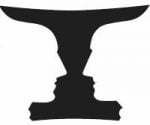Question: “Osho, how do you manage to always have the right anecdote at the right moment?”
Osho: “Let me answer to this with an anecdote.
A king, passing through a small town, saw what he took to be indications of amazing marksmanship. On trees, barns and fences there were numbers of bulls-eyes, each with a bullet-hole in the exact center. He could not believe his eyes. It was superb marksmanship, almost a miracle of achievement. He himself was a good marksman, and he had known many great marksmen in his life, but never anything like this. He asked to meet the expert shot. It turned out to be a madman.
This is sensational! How in the world do you do it? he asked the madman. I myself am a good shot, but nothing compared to your skill and art. Please tell me.
Easy as pie! said the madman and laughed uproariously. I shoot first and draw the circles in later!
Dig?! I choose the anecdotes first, and then draw the circles! I am just like that madman.
There are other people who use anecdotes to illustrate some theoretical point. I do just the opposite. I use theoretical points to illustrate the anecdotes.”
Osho, Ancient Music in the Pines, Ch 6, Q 5
_______________________________________________
Begin with the End in Mind: 2nd Habit of The 7 Habits of Highly Successful People by Dr. Stephen R. Covey.
“In your mind’s eye, picture your 80th birthday. Picture the faces of your friends and family as they come to wish you well. All these people have come to honour you. To express their feelings, to toast a life well spent.
Imagine you are the person being honoured, the subject of speeches. What would you like the speaker to say about you — your life? What would you like them to say about your character and contributions? What achievements would you want them to remember? What impact would you like to have made in their lives?
Start living today with that picture of your own 80th birthday party clearly in mind. In that picture, you will find your definition of true success. I have found that it is extremely helpful to write down what you truly desire inside a personal mission statement. In that written mission statement, you clarify for yourself what end you serve, what you want to be, your character, what you want to do with your life, your contributions and achievements.
Your mission statement is like a personal constitution. It is the basis of making major life-directing decisions, as well as smaller daily choices in the midst of all of the ups and downs of life. Mission statements come in all forms and shapes. It doesn’t matter what form it’s in, as long as it uniquely expresses you. Some come in the form of a poem or a collage of pictures, some are long others might be shorter. A mission statement is not something that you write overnight, it may take several rewrites, but you don’t let that stop you.
Viktor Frankl says, “We detect, rather than invent our missions in life.” I like that choice of words, Detect rather than invent. You see, defining our mission really requires thinking through our deepest desires, our dreams, our sense of responsibility, our most intimate and satisfying relationships. Our meaning comes from within, from down deep within ourselves. As the poet Mary Oliver asks, “Doesn’t everything die at last and too soon?” Tell me, what is it you plan to do with your one wild and precious life?”
— — — — — — — — — — — — — –
In my quest of working with innovative startups, I come across many in health tech space who are trying to connect patients with doctors with possibly two key objectives. One is for patients who need emergency medical attention to connect with qualified doctors and the other is to utilise idle time of doctors and help them make some extra bucks.
When you have a doctor in your family, irrespective of their location, they are the first ones to call in for any medical situation which could be as mundane as a headache. Recently, I lost my brother-in-law
Dr. Kailash Vasavada, 59 years (my only sister’s husband) on 29th May 2019. He was a general practitioner in Jamnagar. It was a sudden end without any prior intimation or condition.
Kailash bhai was a very modest, humble and unassuming human being. His diagnosis, even remotely, was spot on. Whenever he felt that a personal medical intervention was necessary, he would always recommend that without any delay or hesitation. Whenever he and my sister visited us in Mumbai, I noticed that he would get calls from patients to whom he would give advice over phone. I would ask him about his billing and how monetized his consultation and collect fees — he would smile and dodge the answer. I even went on to suggest that he should get an app where patients could subscribe and pay…he never listened.
What I witnessed during his funeral and prayer meeting was something that shook me from within. People from all strata of society, very diverse — in terms of profile, stature, age group…came in disbelief, with teary eyes as if they had lost a very close family member. People were overflowing beyond the physical space of the hall and queuing up outside to get the last glimpses and meet the family to express their loss. Everyone whom I interacted with told me that Doctor would not just check and prescribe medicines, but would call two hours later to check if the first dose was taken and would call again the next day to find out the status of the patient’s health. He would volunteer to visit older patients at their homes and never bothered to charge or remind people of delayed or non-payments of bills.
I thought, Kailash bhai did not make more money to become very rich but how do I evaluate what I personally witnessed that day?
Late Haribhai Kothari, a renowned thinker, had once said that a true doctor is one who would charge more fees from people who could afford, because if he will not, the rich would not value him and his professional capabilities. The Doctor, when visiting poor patients before prescribing medicines, should gauge the financial capacity of the patient’s family and think whether, after buying these expensive medicines, they would be able to feed the patient with healthy food necessary for recovery. A good doctor may leave a 500 rupee note with the prescription under the pillow of the patient.
Like in Osho’s story, if we shoot right, the circles will be drawn around the Bulls-eye Shot. If we have a written or even unwritten Mission Statement of our life, and when we start from the end, we can carve what we want to achieve at the end and live up to it. Kailash bhai lived that life — mostly unwritten and unknown to many but truly felt by people around him in his circle of influence.
Haribhai described Dharma as –
હૃદયમાં જે માનવી નો ગમ સાચવે છે,
અસલમાં એ સાચો ધરમ સાચવે છે.
दिल से जो ईन्सा का ग़म समझता है,
असल में वो सच्चा घरम समझता है।
Those who feel others’ pain in their hearts, are the true keepers of Dharma.

